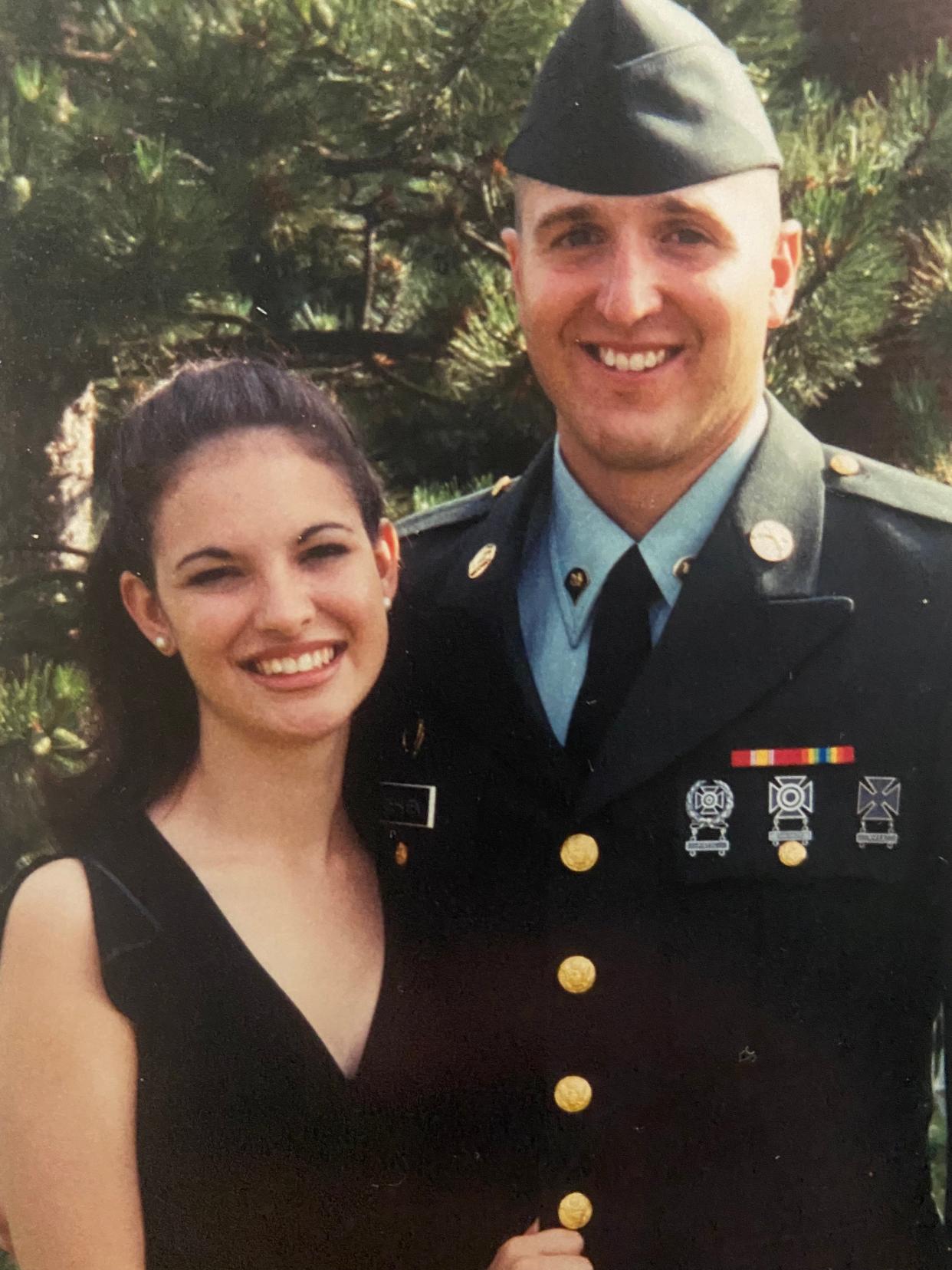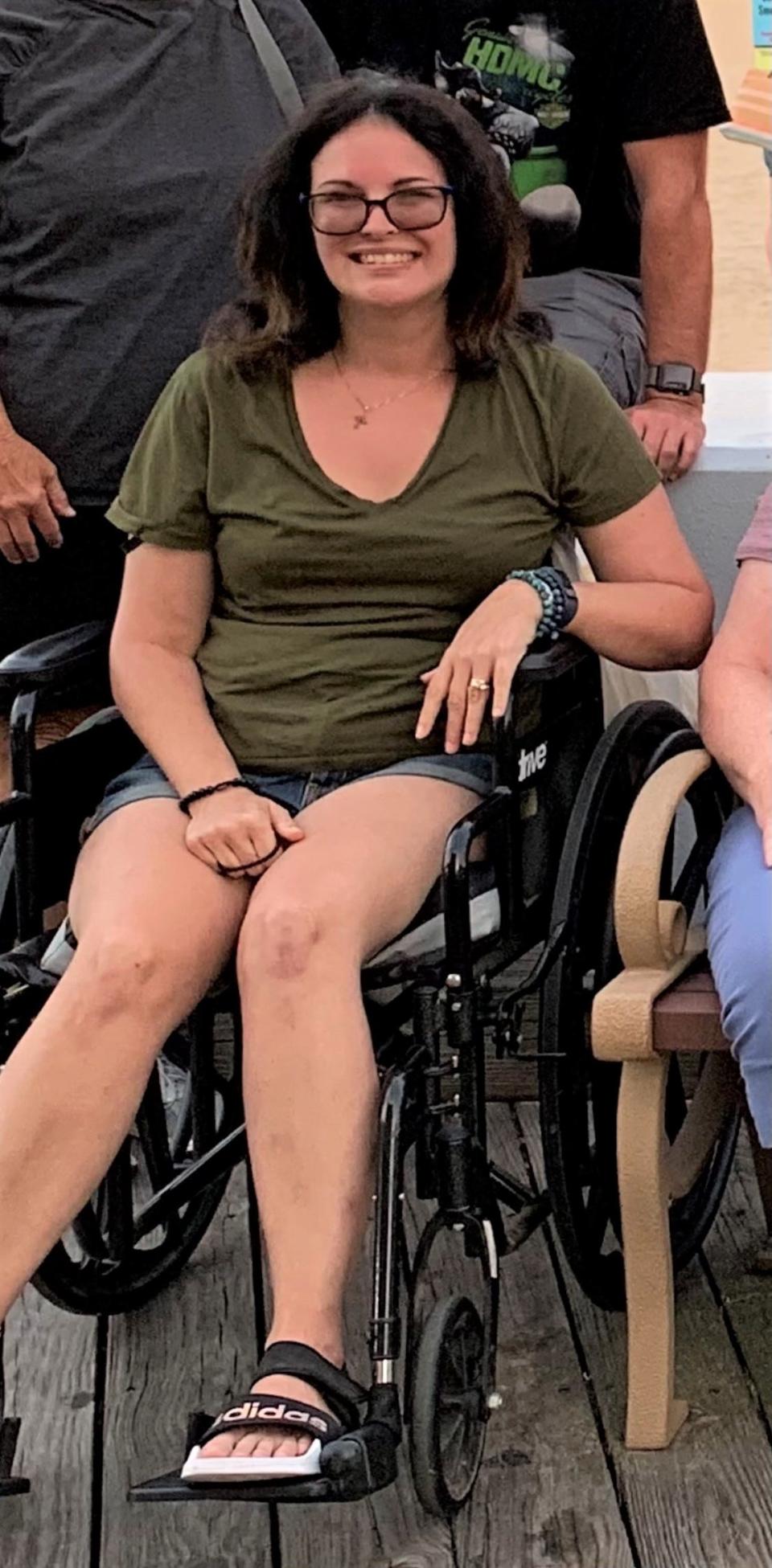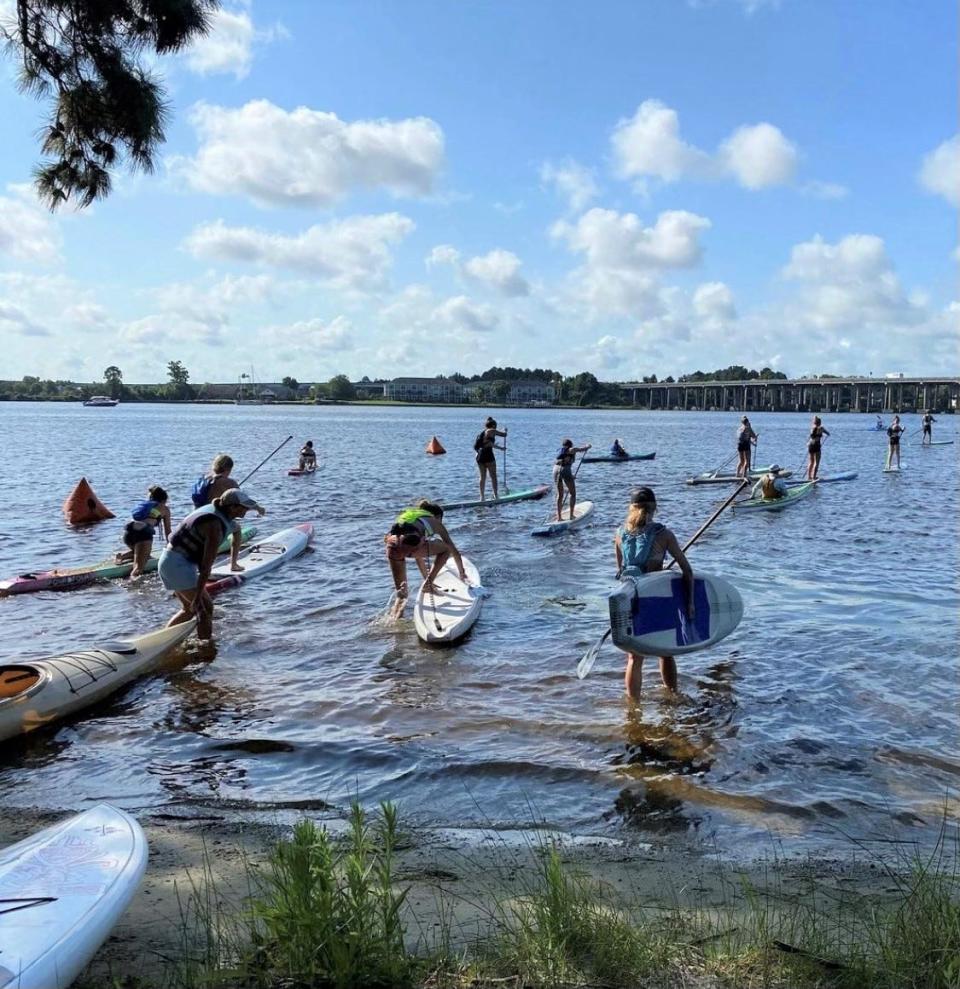New Bern man fighting for wife and others who suffer from fatal neurodegenerative diseases

Exhaustion. Frustration. Resignation.
Those are just a few of the words Grant DeHaven of New Bern uses to describe the range of emotions he and his family have experienced since his wife, Heather, was diagnosed with Huntington’s disease in 2017.
A neurodegenerative condition that slowly deteriorates nervous system cells in the brain and spinal cord, Huntington’s disease causes many patients to lose the ability to walk independently, think clearly, or function independently. Like many similar diseases, such as ALS and Parkinson’s, Huntington’s is often fatal.
DeHaven said he understood the risk Heather faced early in their relationship. As the daughter of a parent who suffered from Huntington’s disease, she faced a 50/50 chance of contracting it herself. When she began exhibiting symptoms in 2017, he knew what to look for.
But what DeHaven never expected were the endless phone calls, empty explanations and dead ends he would face once his wife’s condition deteriorated to a point where he and his two young children were no longer able to provide adequate care.
Simply finding an assisted living facility that will accept his wife, he explained, has been all but impossible. Only 40 years old, Heather falls below the minimum age of 55 that many of the facilities enforce. And as a working father without the funds to pay out-of-pocket for an expensive private facility, DeHaven said he has struggled to find assisted living homes that accept Medicaid and provide the level of care his wife requires.
“What I have uncovered is a system that allows assisted living facilities, licensed by NC Department of Health and Human Services, to discriminate based on her age," he said. "Due to this, the system is set up for her to instead go into a group home designed for people with mental disorders and psychiatric conditions, which are not at all similar to Huntington’s,” DeHaven said.

Heather’s battle
Having watched her mother slowly succumb to the disease, Grant and Heather understood the risks when they were married in their early 20s. But somehow, they thought, their lives would be different.
“We weren’t smart about being prepared for it because we thought we could beat anything,” DeHaven admitted. “Then I started seeing the symptoms but I didn’t want to tell her because a lot of times they don’t even know they’re manifesting the symptoms.”
Now, on any given day, Heather’s mentality is like that of a child’s or an elderly person’s, DeHaven said, with mood swings that range from severe irritation to aggression. She recently lost the ability to speak and has difficulty swallowing food, he said.
“She fell two or three times and hit her head,” DeHaven explained. “There are just constant fears of what will happen if you’re not around her.”
DeHaven said he has had to remove himself emotionally from the process of caring for his wife simply to do what’s necessary on a daily basis. Though he focuses on the here and now, he knows all too well what lies ahead.
“During the last few years of her life Heather’s mother was in a vegetative state,” he said. "Doctors tend to say that the person is still there but when we saw her mother she couldn't speak, she couldn’t really move. So you don’t know what’s really there, they’re just kind of existing.”
By necessity, said Dehaven, his children, ages 16 and 11, have taken on caregiver responsibilities, another reason he has fought to get his wife into an assisted living home.
“We love Heather and we take care of her but it becomes unfair to the kids,” he said. “They have a 50% risk of getting this disease and they’re turned into a caregiver, they’re losing out on that opportunity to just be their age.”
"It's not going to get better"
According to information from the Mayo Clinic, symptoms of Huntington's disease usually develop between ages 30 and 50. A statistic that leads DeHaven to guess that many more families are facing a situation much like his own: a loved one who is both too young for an assisted living facility not but sick enough to be granted care at a skilled nursing home.
“My first priority was getting Heather a suitable place that met our needs that was also of a quality that would take care of her. The majority of the facilities in Craven County are owned by larger corporations, so they’ve all been bought up by conglomerations almost like hotel chains,” DeHaven noted.
Under state statute, facilities that apply for an adult care license are required to serve “any adult who has a primary diagnosis of Alzheimer's disease or other forms of dementia who requires assistance with activities of daily living, housing, and services provided by a licensed Alzheimer's and dementia care unit.”
Unfortunately, said DeHaven, the regulation is rarely enforced.
“There is no regulation by the state when these facilities are inspected. They’re only looking at the care received by people who are already living there,” he said. “So essentially these facilities are allowed to make up their own rules about who they accept.”
DeHaven said the few assisted living facilities in the area that accept Medicaid are reluctant to take in patients with neurodegenerative diseases. Many worry that Heather is simply not impaired enough at this point to require services such as bathing, feeding, and toileting, he noted.
“If those percentages of those services aren’t conducted then the facilities will not receive their payment from the government,” he said. “When I call a lot of these places they’re concerned she’s not going to meet the threshold. But that shouldn’t even be a discussion; this is Huntington’s disease, it’s not going to get better.”
DeHaven said the age requirement of assisted living facilities has been particularly galling.
“That’s incredibly frustrating. If you’re 55 it’s ‘Oh, come on in,” but if you're 54 then it’s ‘Too bad, we can’t take you.”
DeHaven’s efforts to secure the proper treatment for his wife led him to file a civil rights violation claim against NCDHHS four weeks ago. Though he filed a separate claim with Disability Rights North Carolina, the state’s designated protection and advocacy agency, they declined to take the case.
Jean Jones, executive director at Riverstone Assisted Living in River Bend, said the facility does accept individuals under 55 and would consider those with a neurodegenerative disease.
“It would just depend on what level of care they need and what stage they’re at,” Jones said.
The Sun Journal also reached out to the directors at Carebridge Assisted Living, McCarthy Court and Golden Heights Assisted Living in New Bern but had not received a reply by deadline.
Paddle Battle puts spotlight on caregivers

As a way to address the needs of neorogenerative patients like Heather that “fall through the gaps” as he puts it, DeHaven joined Task Force Neuro two years ago and recently took over as executive director. The local nonprofit works to bring together organizations that support neurodegenerative disease care.
On Saturday, July 16 Task Force Neuro will hold its second annual Bear Town Paddle Battles fundraiser at Lawson Creek Park in New Bern. The event will kick off at Jack’s Island at 9:30 a.m. and will feature a two mile and a six mile race as well as a fun paddle event.
An awards ceremony will be held around Noon.
Food trucks and vendors will be on hand for the event.
Participants can sign up online through midnight on July 14 at https://paddleguru.com/ and can also register the day of the event.
Registration for both races is $60 and donations to Task Force Neuro will be accepted on race day as well. According to DeHaven, the Bear Town Paddle Battles drew more than 90 racers last year and raised around $5,000.
“After the success of last year we really wanted to make this our flagship event and get this to grow,” he commented.
DeHaven said Task Force Neuro’s primary mission is to build a bridge between resource providers from the medical, therapy, financial and estate planning fields.
“We want to educate families about what’s available in the area and then help them develop a care team that works for them,” DeHaven said. “Our dream is whenever we encounter someone who is facing one of these diseases, we want to take that work out of the process for them.”
DeHaven said he also shared the goal of Task Force Neuro’s founder, Sandy Sanderson, who sought to build a home specifically for people like Heather — younger patients who need care specific to neuro diseases.
“I’m really working on that as one of our fundamental missions, to build some type of home or daycare for people with these types of ailments,” he explained. “There’s a need and without any regularity change that gap is going to get worse because there’s more people of younger age getting these diseases."
For more information on Task Force Neuro, visit https://www.taskforceneuro.org/.
Reporter Todd Wetherington can be reached by email at wwetherington@gannett.com. Please consider supporting local journalism by signing up for a digital subscription.
This article originally appeared on Sun Journal: New Bern Paddle Battle highlights gap in neuro disease treatment

